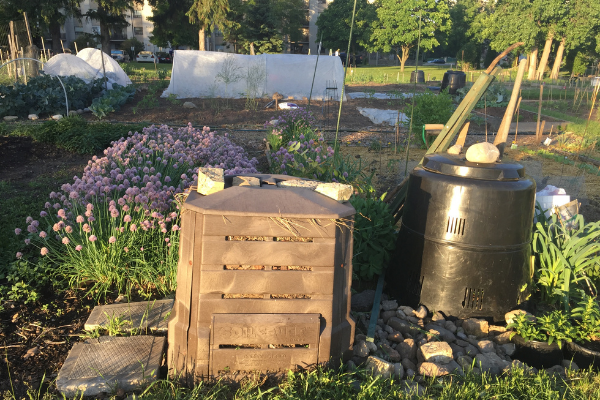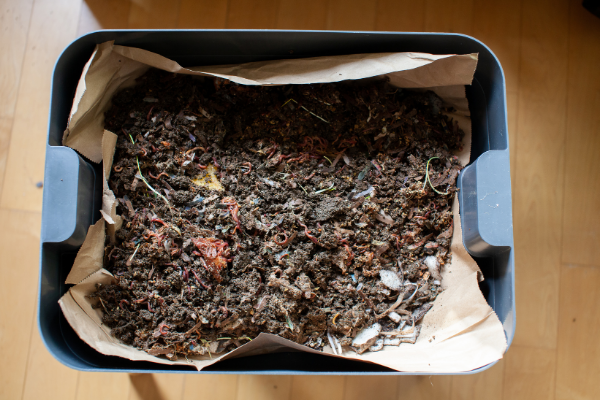Composting in Spall Spaces & Apartments
Composting is possible without a backyard! There are a number of options for those with limited space.
Composting with a Community Garden
If you want to build and manage a pile but simply don’t have the space for it, try connecting with a local community garden. Many community gardens already have compost piles that you can offer to help out with. If they don’t have a compost pile, help them get one going! Here is a community composting guide to get started.
Compost Collection Services
Another option is to have your food scraps collected and managed by local composters. Soil Cycle, Missoula Compost Collection, and Recycling Works are compost haulers in Missoula that will collect your food scraps for a fee.
Compost Drop-off
Food scraps can be dropped off for disposal at Garden City Compost, Missoula’s city-operated industrial composting facility. Garden City Compost accepts bulk loads, so this is an especially useful option to partner up on with some neighbors and friends!
Additionally, Soil Cycle members can drop off food scraps directly at their facility.
Finally, sometimes local farmers will agree to partner with community members for food scrap disposal. Certain types of food scraps can be fed to animals like chickens, and many farmers already manage large compost piles. Check around with your neighbors and farmer friends to see if this is an option for you!
Porch Composting
Small-scale composting on a porch or front stoop is doable! Check out the video below to learn how.
Indoor Composting with Worms
Vermicomposting is a type of composting that can be done indoors. Vermicomposts take up very little space, and when managed properly, they do not smell and are not even noticeable. Click here to learn more about vermicomposting.
Bokashi Composting
Bokashi, which means “fermented organic matter,” originates from traditional farming practices in East Asia. In this method, food scraps are fermented with Effective Microorganisms in an anaerobic, airtight container, then buried in the garden. The process takes up very little space and can be done indoors, making it a viable alternative for those with limited space. Because it is fermented, it also can process a wider variety of wastes than backyard composting - including meat, fish, and dairy! Learn about the bokashi method here.



